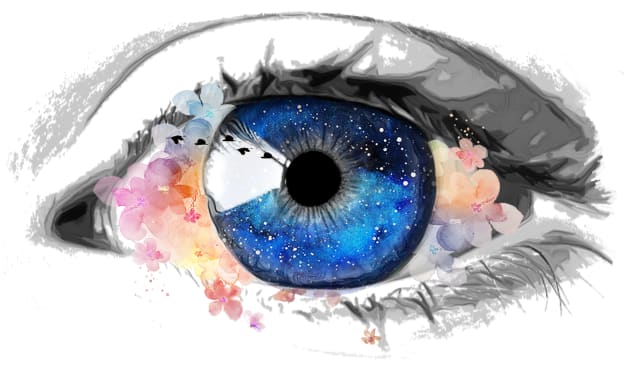
Intimations of mortality are all around us, sometimes subtle and easy to miss, other times impossible to ignore. As we go about our daily lives, hunger pangs, health concerns, ambulance sirens, tragic news stories, old photographs of ourselves, and images of aging all serve as reminders that our existence is fragile and could come to an abrupt end at any moment. It's a sobering thought, but it's one that we all have to contend with at some point.
Death is a constant opponent, always lurking in the background and taunting us with every sign of aging or decay.
It can be demoralizing to watch our bodies change and deteriorate, but if we're fortunate enough to live a long life, we begin to see our roots spread out beneath us like the branches of a tree. These roots may be invisible to the naked eye, but they're an integral part of our existence, intertwined with every aspect of our lives.
Nearly everything we do is in some sense pressed upon by these roots - our actions, beliefs, values, goals, and life. In other words, our mortality is an ever-present force that shapes every decision we make, whether we're aware of it or not. It's a heavy burden to bear, but it's also what gives our lives meaning and purpose.
Ernest Becker, an eminent cultural anthropologist, and writer from the 20th century expounded a theory in his book, "The Denial of Death," which declares that death, and our reluctance to confront it, is the motivating force behind the majority of human behavior. It's an idea that bears exploring and holds profound implications for our lives.
As humans, we possess a remarkable capacity for abstract thinking that sets us apart from other living creatures on this planet. But Becker cautions that this doesn't necessarily make us superior. We may feel special, but the truth is that we exist both within and outside the bounds of nature, in a paradoxical state of being.
To illustrate this paradox, Becker famously remarked, "Man is a worm and food for worms."
Humanity is facing a unique and unprecedented conflict, grappling with the stark realization of our existence and inevitable demise. We are self-conscious animals, with an acute awareness that we are simply "food for worms."
As Ernest Becker notes, "man is given no other significance or consolation for this burden he must bear." The absurdity and monstrosity of this knowledge are undeniable.
It's terrifying to emerge from nothingness with a name, a consciousness of self, and a deep yearning for life, only to be confronted with the certainty of death.
It feels like a cruel and elaborate hoax.
This fear of death, and our refusal to confront it honestly, is at the core of much of our behavior. We may not even be fully aware of it.
According to Becker, "the conscious mind cannot square the circle of the approaching abyss. It cannot make sense of the idea that this is its only serving of forever."
We are confused and frightened by our finitude, and we try to resist it by devising methods and explanations that deny its reality.
Becker calls this a "Casua Sui project" or heroism project - an attempt to distract and deny the implications of our mortality.
We engage in cultural activities, create symbolic constructs, and adopt beliefs that help us deny our cosmic insignificance and convince ourselves that we matter.
But as Becker reminds us, we cannot escape the fact that we are all living things born to die, with no inherent specialness or reason to justify our awareness.
In the face of this existential crisis, we must acknowledge and accept our mortality. Only then can we truly appreciate the beauty and significance of our brief existence, and live our lives with purpose and meaning.
According to Becker, people seek to eternalize themselves in various ways.
For some, it's through religion, while for others, it's through achieving fame or success in their career or by creating something significant.
These methods all attempt to achieve some form of immortality, either by literal afterlife or by leaving a legacy that lasts beyond one's physical existence.
However, Becker argued that all these efforts to achieve heroism or immortality are ultimately futile and destined to fail. He believed that with modern knowledge and understanding, we are unable to achieve anything significant or immortalizing, as the universe is revealed to be utterly chaotic, indifferent, and meaningless.
Becker offered no consolation for humanity's urge to heroism, as he did not believe there was any. However, he did suggest an alternative form of heroism, which involves accepting our condition with intense humility and positive resignation to the awe, mystery, and chaos of the universe. This position acknowledges our absurdity and victimization by our death, but it also provides perspective and reduces our concerns over the petty and trivial.
Perhaps the best way to handle the weight of our inevitable death is to use it to put our life into perspective. By recognizing that at some point, none of this will matter, we can focus on what truly matters now.
While we may not know what comes after death or when it will come for us, we do know that we are alive now, and that's all that matters.
Therefore, the only thing that truly matters is to do what matters to us while we can.

We should enjoy every moment fully, fall in love, make the most of our time, and live without regret. We should cherish the fact that there are still many moments in life that we have yet to experience for the last time. By living fully and savoring each moment, we can make the most of the time we have and create a life filled with meaningful experiences.
Life is an absurd journey that can leave us feeling lost and confused. As Robert Pantano once said, "There is nothing else to do, nowhere else to go. We must charge headlong into the absurdity, embrace the futility, and live hard for nothing in every moment."
It's important to not let the singularity of our existence become a burden that weighs us down, causing us to feel pressure to get everything right.
The truth is, we'll often make mistakes, have negative thoughts and emotions, and experience difficult times. However, this is precisely what makes life so precious and worth living.
As we navigate this complex maze of existence, it's easy to become overwhelmed and feel guilty for our mistakes. But what's the point in dwelling on our negative emotions in a world that is designed to set us up for failure?
"You are driving blind through the most impossibly complex, strange maze that you know ends in a head-on collision with the wall. What use is getting more upset or guilty about feeling upset or guilty?" -Robert Pantano
Living life to the fullest means embracing the imperfections, mistakes, and difficult emotions that come with it.
It's a reminder that we only have one shot at life, and we must make the most of it.
As the philosopher said, "We must live hard for nothing in every moment."
Of course, this is easier said than done, but by deeply contemplating our mortality, we can remind ourselves that our mistakes are a part of what makes us human. This reminder can serve as a sedative, helping us to relax and enjoy the journey instead of constantly worrying about the destination.
About the Creator
Kamya
We should enjoy every moment fully, fall in love, make the most of our time, and live without regret. We should cherish the fact that there are still many moments in life that we have yet to experience for the last time.






Comments
There are no comments for this story
Be the first to respond and start the conversation.